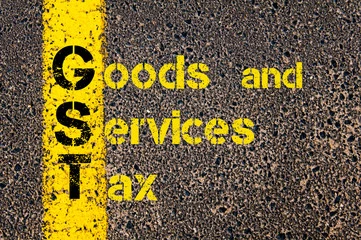GST is a tax on goods and services, however it is payable at a particular point of time. That point of time is when the supply of goods or services takes place.
Now even though it is a tax on goods and services being supplied, there is no definition of this expression supply in the Constitution, which basically means that the GST Council will recommend to the Parliament and the States as to on what all activities the goods and services tax should be levied.
Today, currently under the laws which are recommended by the GST Council, GST is levied on all kinds of supply.
And when we say all kinds of supply it means the sale, it means the consignment, it means an input, it means a gift, it means a barter, it means any kind of supply by which property in one good passes on to another or by which one person supplies the services to another.
In fact technically, services has been defined to mean anything other than goods, therefore whatever are goods are covered under the GST regarding goods and whatever is left out is covered as GST on services.
Let us take a few illustrations. There was a dispute which came up before the Bombay High Court, the dispute was that if the State Government is charging one time lease premium which is typically called a salaami, is it a supply, is it subject to GST? The Bombay High Court says yes and the reason being, there is no description of what is a supply under the Constitution and under the GST laws it has been defined very widely, therefore even a salaami is a supply for GST purposes.
Then there is an advanced ruling, the advanced ruling says that mining rights which are given by the states to people who are exploring minerals at a particular area are also required to pay GST as it is a supply.
For our practical purposes, it is easy to find an answer if we look at the GST rate schedule.
Now there are certain notifications which are issued under the GST laws. These notifications prescribe that there are certain goods which are subject to GST and there are certain services which are subject to GST. Against each of these goods there is a particular rate defined, against services also depending upon the nature the rate is defined.
But then there can be illustrations in which there is not a single supply but there are multiple components which are being given. For eg. there may be a case of annual maintenance contract, in which the supplier is giving certain services, is also giving certain goods. In this case the law has prescribed a different mechanism.
The mechanism is that these kind of supplies are either called as composite supplies or these are called as mixed supplies. Composite supply is basically one supply wherein there is a predominant aspect regarding a particular good or services whereas mixed supplies are those where there are lot of jumbled up items but there is no predominant supply.
For eg., a person who is selling a shampoo he also decides to give soap along with that shampoo but the price is one. In this case, it will be considered to be a mixed supply as there is no homogeneity attached to it,
whereas there can be certain supplies which are predominant; for eg. AMC, in that depending upon the predominant aspect of good or services it can get covered as composite supply.
So there is no generic definition but then there are bifurcations, there are complexities and there are different concepts attached to supply.

